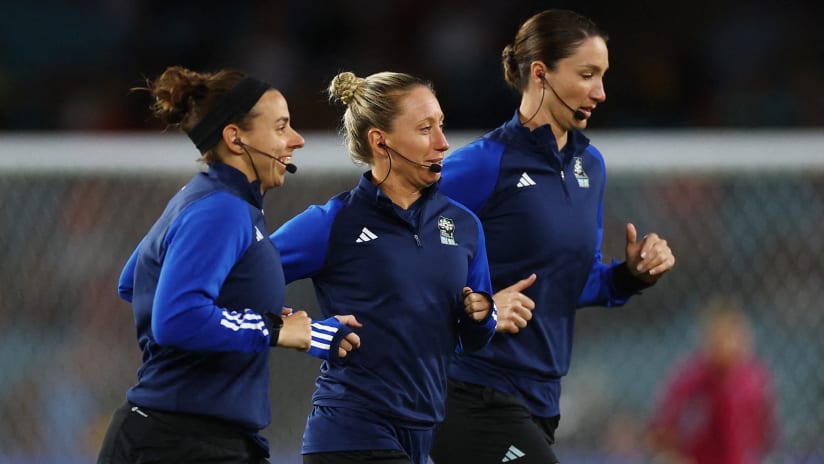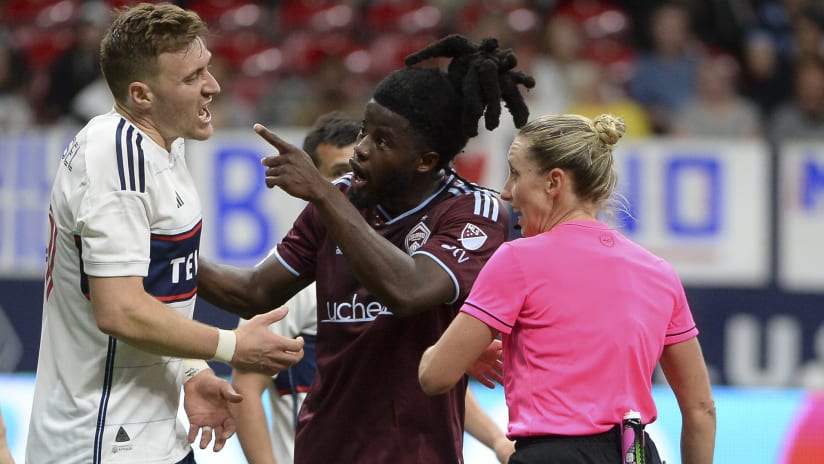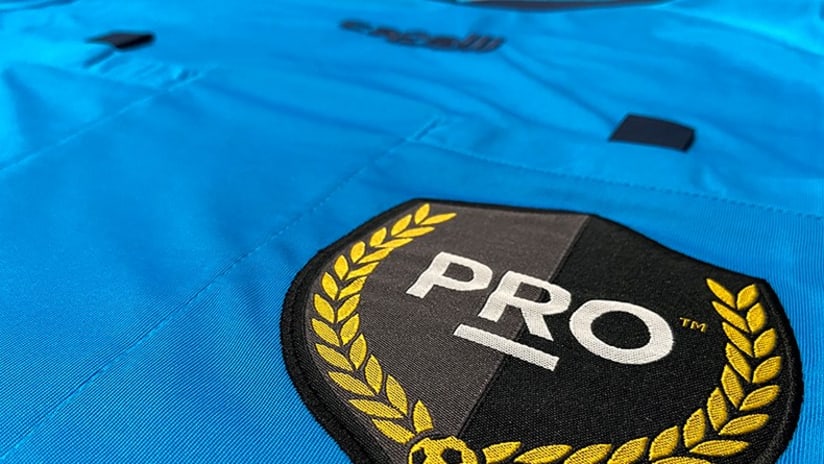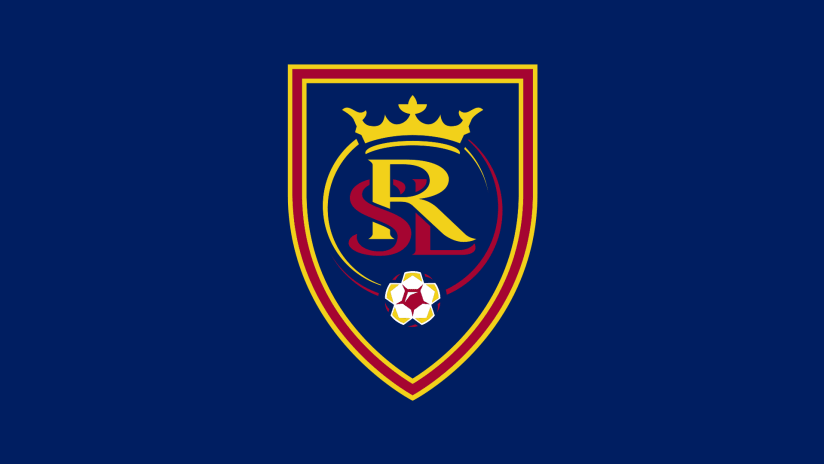Want to hear from some of the notable names around the league? MLSsoccer.com contributing editor Alicia Rodriguez spends 10 minutes talking to some of the big names in North American soccer.
Mark Geiger is an American referee and has been selected to be the head official for Sunday's MLS Cup final (3 pm ET, ESPN, UniMas, UDN, TSN1, RDS2). The one-time high school math teacher has been officiating in MLS since 2004, and in addition to being named MLS Referee of the Year this season, the second such honor in his career, Geiger was an official at the World Cup this summer in Brazil.
Ahead of Sunday's grand finale, Geiger talked about being assigned to MLS Cup, the general styles between MLS and FIFA games, and his own refereeing style.
Rodriguez: For most referees, officiating the MLS Cup final would definitely be the biggest professional achievement in a year. But you participated in the World Cup this summer. Where does the MLS Cup final assignment rank for you?
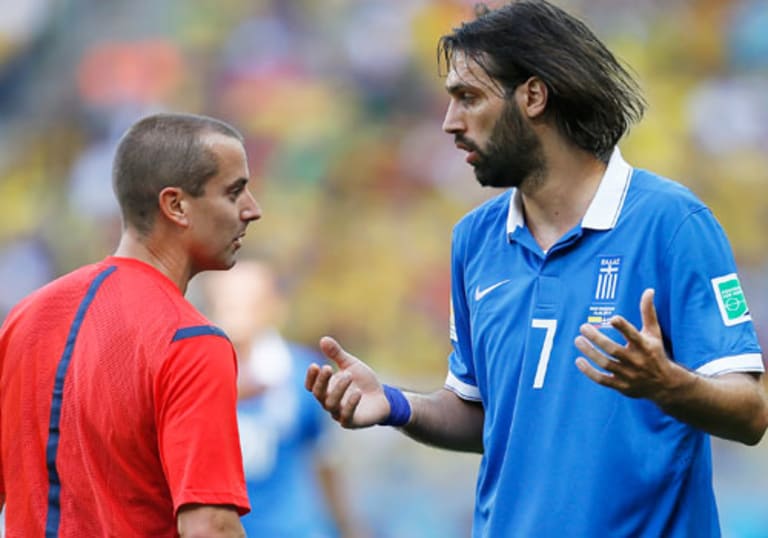
Geiger
: It’s a great honor just to be considered for the assignment, and to get it, it’s absolutely fantastic. It’s the highlight of our domestic league. It’s a showcase game, and I’m certainly honored and privileged to be a part of it.
Rodriguez: It’s not uncommon for players to experience a post-World Cup hangover. Did you feel any of that when you returned from Brazil? Any emotional letdown or fatigue from the whirlwind journey?
Geiger: No. World Cup was something new to me, and every experience that happened there was so new. And it’s so good to get back to the US and the first thing I went to was a referee camp. I saw all the guys I was used to working with, and I did a couple friendly matches to get back in the swing of things with the domestic league.
It was such a relief in some respects, because everything was familiar again. The players were familiar, the referees were familiar, the settings were familiar, so it was something I looked forward to coming back to.
Rodriguez: You mentioned [in a previous interview] that you had to call games perhaps a little bit differently in the World Cup, based on the expectations compared to MLS. Did you find that you had any trouble readjusting to MLS?
Geiger: No, I think that statement was taken out of context a little bit. There is a much better alignment between the expectations in a FIFA match and here in an MLS game. Our instruction that we get [for MLS] is very much in line with what we’re being instructed at FIFA as well.
One thing we have to consider is that MLS has an entertainment factor to it, because of the dynamic of the league. It’s really for entertainment. They want the ball in play as much as possible, they want the game flow as much as possible, for the entertainment factor, for players and the spectators as well.
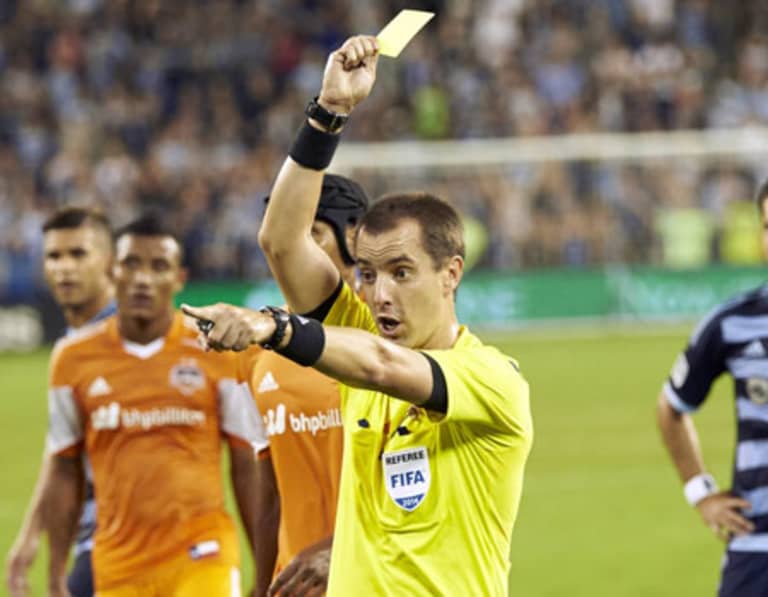
A couple years ago, we had a game flow model that was brought in, where we were asked to call one or two fouls less per game. That doesn’t mean that if it’s a 100 percent foul that we’re not going to blow the whistle, of course we’re going to blow those fouls. But the trifling, inconsequential contacts where we may have called it safe in the past, we would let go, just to allow play to continue going.
So because there is so much of a similarity between MLS and FIFA at this point, there wasn’t much of an adjustment for me to turn back to the domestic league.
Rodriguez: And that’s probably pretty helpful in moving back and forth between the two competitions.
Geiger: Absolutely.
Rodriguez: One thing I find really interesting when hearing about how referees approach the game is describing their own particular style of officiating. I’m wondering how you would characterize your refereeing style?
Geiger: The way I see myself, at least, is a balance between being a “book” referee, you know, someone who strictly goes by the laws of the game, and somebody that is more approachable for the players. You look at the referees currently in the league and there’s a wide range of referee styles. Some guys are a little more “book” referees and others are much more approachable on the field.
I feel like over the years I’ve developed a style that balances the two, where I’m standard, and the decisions I make are based on the laws of the game, but I hope I can be approached by the players out there and have conversations with them, and I listen to what they have to tell me. And I make adjustments as needed for that particular game.
Rodriguez: What’s the hardest call to make during a game? Is there one in particular that is so tough and always a struggle to get it right?
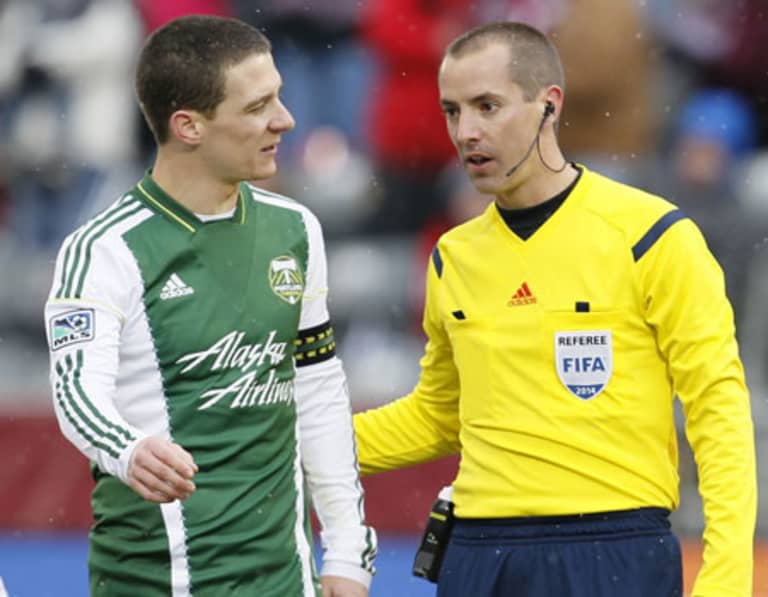
Geiger
: I think any decision that changes the dynamics of the game is going to be so difficult to make. Obviously the penalty vs. no penalty [decision] is going to be very difficult, because nine times out 10, the goal is scored when a penalty kick is awarded. Also, a red card decision, or whether something is a red card or yellow card, those are difficult as well because if a red card is given then a team is playing down [a player].
So any decision that changes or impacts the game in that fashion is going to be a difficult one for us to make. So what we do is we make sure we work hard to have the right angle and to be in the right position to make the best decision by the laws of the game.
Rodriguez: What do you think is most the most misunderstood part of a referee’s job in the eyes of fans? Is there anything you want to set the record straight on?
Geiger: We care so much about the game.
We don’t want to make it about ourselves, we don’t want to be the focal point in the match, and we want to just provide an environment for the players to showcase their skills. And that’s our job.
It doesn’t start when we blow the whistle to start the match and then blow the whistle to end the match. We do a lot of prep work going into a game, that starts from the time that we finish our last match. And we self-evaluate. After each game we watch DVDs of our own performances, we critique ourselves and then we meet on a regular basis with other referees and go over the decisions that we made.
This is something that we all take extremely seriously, and we just want to do the best that we can to make the league grow and create a safe environment for the players to showcase themselves.
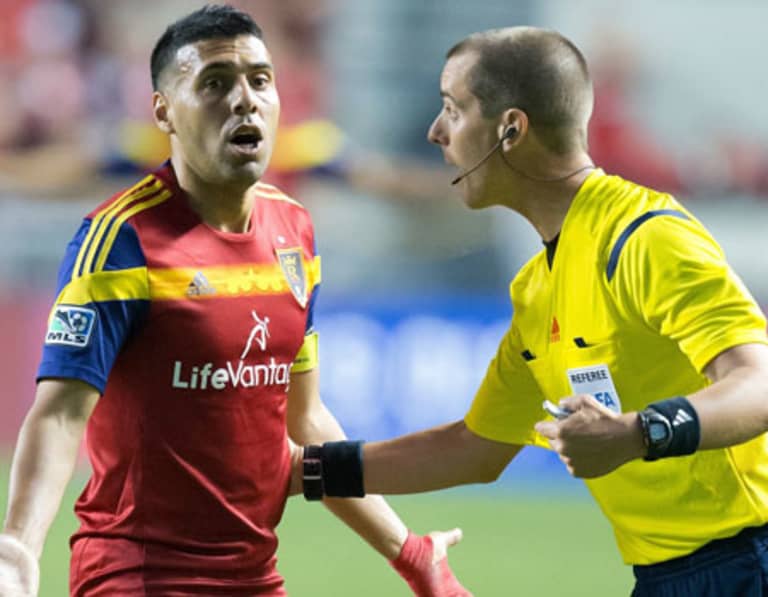
Rodriguez
: That leads into my final question. Let’s say it’s gameday. I’m sure people would be interested to hear about your routine before each game. Will there be any adjustments for the final?
Geiger: I think the way we prepare is pretty much the same for every game. We will meet as a crew. Saturday we will be meeting as a group, and we will be discussing what we expect of each other at the match and what we’re expecting from the game. We’ll talk about team tactics, we’ll talk about player tactics, and try to get a feel for what we expect to happen when we step out on the field on Sunday. We will prepare as a group in that fashion and hopefully things will work out for themselves.
The only thing we can do is prepare ourselves as much as possible, so there are no surprises when the game actually happens.

